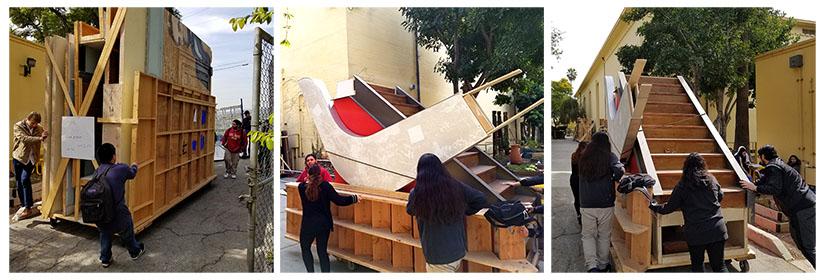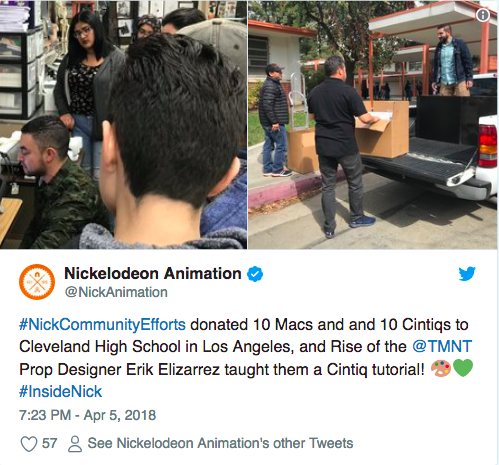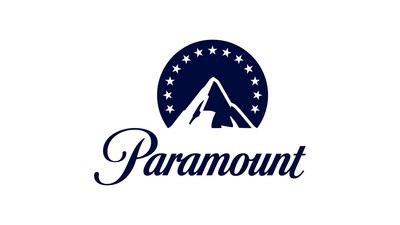From Props to Production Equipment, Nickelodeon Recycling Efforts Turn Trash into Treasure
Originally published on Blog.Viacom
The set is a key component of any television show. It’s a sometimes subtle, yet always vital backdrop upon which the characters play out their story. After all, what would Nickelodeon’s School of Rock be without a classroom setting, musical instruments and preppy school uniforms?
“Our sets are works of art,” said Patrick Garney, senior director of production for live-action series production at Nickelodeon, where he has worked since 2002.
Nick, like other Viacom brands, reuses these painstakingly designed sets wherever it can, so the keen-eyed may notice items from sketch-comedy classic All That tucked into the background of the network’s newer shows.
“We have an incredible reputation for making sure things get second, third and fourth lives,” said Garney. “Past that, we try incredibly hard to match items with local charities; lastly, we send them to charity thrift stores.”
If outdated items cannot be re-purposed for one of the aforementioned categories, the last resort is to send them to the Dumpster. But Nickelodeon employees from various departments have worked to insert another option for old sets: donating the facades, along with any other useful material—props, hardware, etc.—to theater departments at Los Angeles public schools and select charities, an extra step that benefits not only the community and the environment, but, by cutting down on disposal fees, Nickelodeon and Viacom.
Lee Ann Larsen, executive vice president of production and live action for Nickelodeon, was impressed by the concept when a member of Garney’s team first pitched it to her.
“I immediately said yes,” said Larsen. “Our goal in the production department is always to be cognizant of the environment, and to encourage sustainability efforts.”
The set wall-recycling project’s first beneficiary has been the Los Angeles Unified School District. Nickelodeon has worked with this school in the past to donate outdated yet functional production equipment: monitors, cameras, computers, tablets and more. Nickelodeon employees also volunteer their time, providing demos to teach kids how to use video-editing programs such as Avid or Premiere.
“[The set donation initiative] was a collaboration between our two worlds,” said Nickelodeon Public Affairs Senior Manager Carson Smith, who manages the equipment-donation program. “Patrick and his team realized he had all of this wonderful stuff, like set walls and wardrobe and furniture that could—and should—be reused. Leveraging our resources, we were able to find homes for these [production set design] items, keeping them out of landfills while benefiting schools and art education organizations throughout the region.”
The equipment and sets have been especially welcome in these low-income schools, where theater and arts programs are not always prioritized.
“A lot of schools can’t afford major theater programs,” said Garney, “So they’re using cardboard or paper [to construct sets].”
The dedicated staff are as meticulous in their deconstruction of these sets as the folks who create them, ensuring that students attending theater classes at local public high schools get to perform using state-of-the-art, professional backdrops from popular Nickelodeon shows such as Nicky, Ricky, Dicky and Dawn, The Thundermans and School of Rock.
By rerouting sets destined for the trash to those who could use them, Nick also ends up saving quite a bit of money, since disposal of these items is costly.
Take, for example, the parents’ bedroom set on Nicky, Ricky, Dicky and Dawn, which would have cost nearly a thousand dollars to demolish. By donating the set walls to schools lacking theater resources – and the bedding, blankets and other accouterments of a master bedroom to local charities, the company cut this demolition cost in half.
The set wall-recycling effort echoes another passion project generated by Burbank employees, involving recycling of disposable products with reusable mugs and glasses at Nickelodeon’s Burbank office, that does a larger public good while saving the company money.
“We have our eyes on things that some people see as trash,” said Garney, “But some people see as treasure.”



